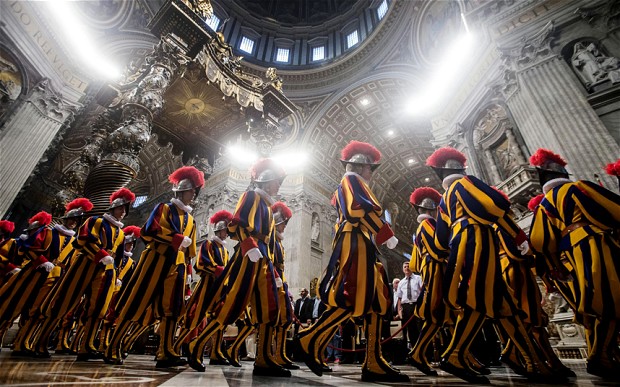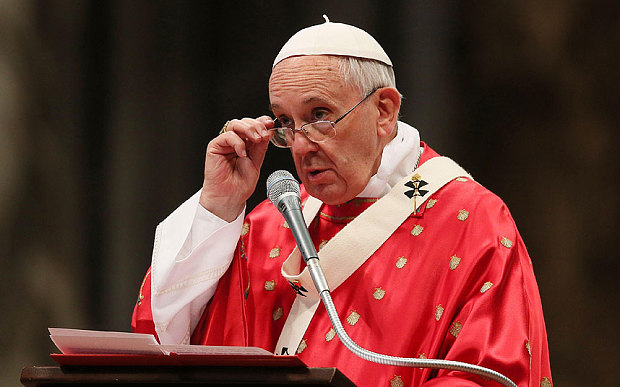Profit at Vatican Bank Soars 20 Times As It Moves Away from Scandals of the Past
By Nick Squires
Once tainted by scandal and intrigue, the Vatican bank has managed to increase its profits by more than 20 times since embarking on a comprehensive drive for transparency and accountability ordered by Pope Francis. The bank announced on Monday that it earned ˆ69.3 million (?49 million) in 2014 – up from ˆ2.9 million the previous year. Profits plummeted in 2013 as a result of a dramatic dip in the value of the bank’s gold reserves, two substantial write-offs and the cost of employing a team of forensic accountants to review the murkiest corners of its finances. The outside consultants were brought in to bring the bank, officially known as the Institute for Religious Works, into compliance with tough anti-money laundering regulations. “The gold price did not move in our favour (in 2013) and there were the extraordinary effects of two substantial write-offs, one on an investment equity fund made by the previous management of the bank and the other on a bond issue for a media company,” Max Hohenberg, a bank spokesman, told The Telegraph. “Plus we had high consultancy and legal fees to pay. So 2013 was not a normal year – we had a massive clean-up of the balance sheet. Now we are back to normal.”
Under the root-and-branch reform that was ordered by Pope Francis shortly after he was elected in early 2013, the bank has closed down more than 4,500 accounts. Around 550 were shut down after it was deemed that their holders did not meet new, stricter criteria regarding tax evasion, money-laundering and transparency. The majority of the accounts, however, had either been dormant for years or held by people who were no longer entitled to bank with the Vatican, said Mr Hohenberg. “For example, there were accounts held by former ambassadors to the Holy See who are no longer entitled to them. It doesn’t mean they are criminals, just that the rules have changed.” The pontiff has made reforming the bank, which in the past was tainted by allegations of financial skulduggery, one of the priorities of his papacy. He has appointed George Pell, an Australian cardinal, to oversee the reform process, making him in effect the Vatican’s economy minister. “The long-term, strategic plan of (the bank) revolves around two key objectives: putting the interests of the clients first by offering appropriate and improved services and by de-risking the activities of (the bank)”, said Jean-Baptiste de Franssu, the chairman. "All this is done within the strong regulatory framework now in place in the Vatican and in close cooperation with AIF, the Holy See regulator." Until the reforms ordered by Pope Francis, the bank had a distinctly patchy record on financial propriety and transparency. Most notorious was its involvement in the bankruptcy of Italy’s largest private bank, the Banco Ambrosiano, in 1982. Its president, Roberto Calvi, nicknamed “God’s Banker”, was found hanged beneath London’s Blackfriars Bridge, with investigators unable to rule whether he had committed suicide or was murdered, possibly by the Mafia.
|
.
Any original material on these pages is copyright © BishopAccountability.org 2004. Reproduce freely with attribution.

